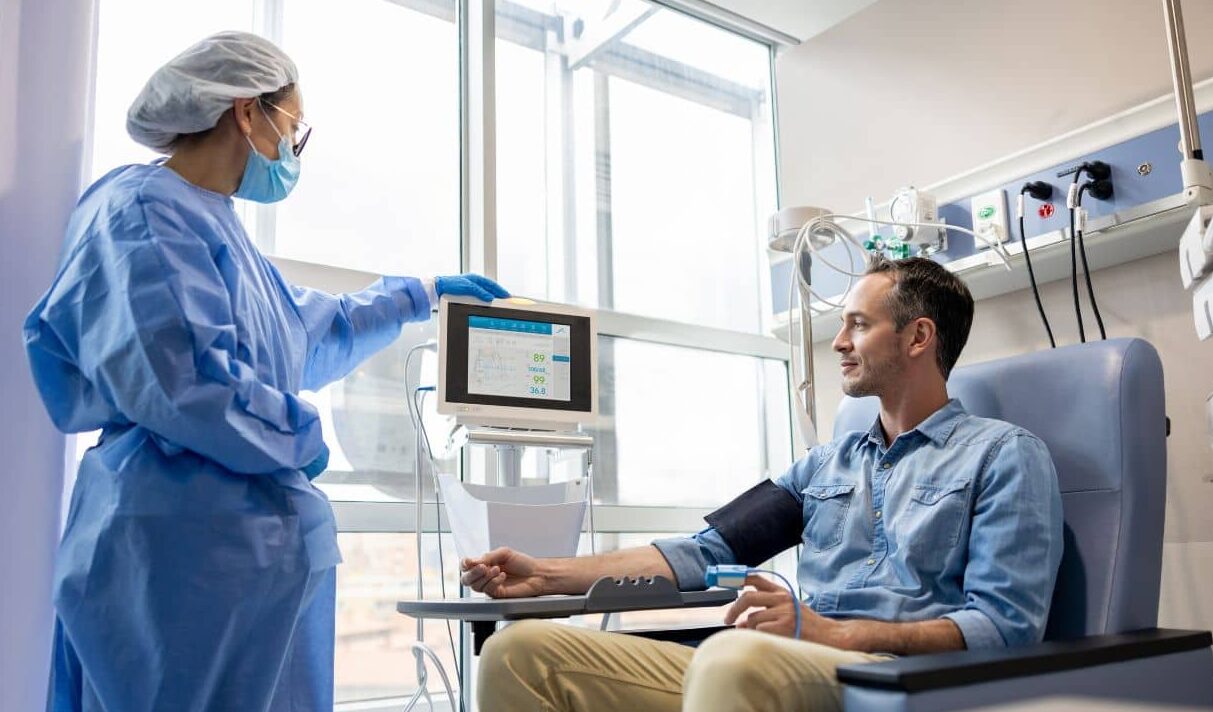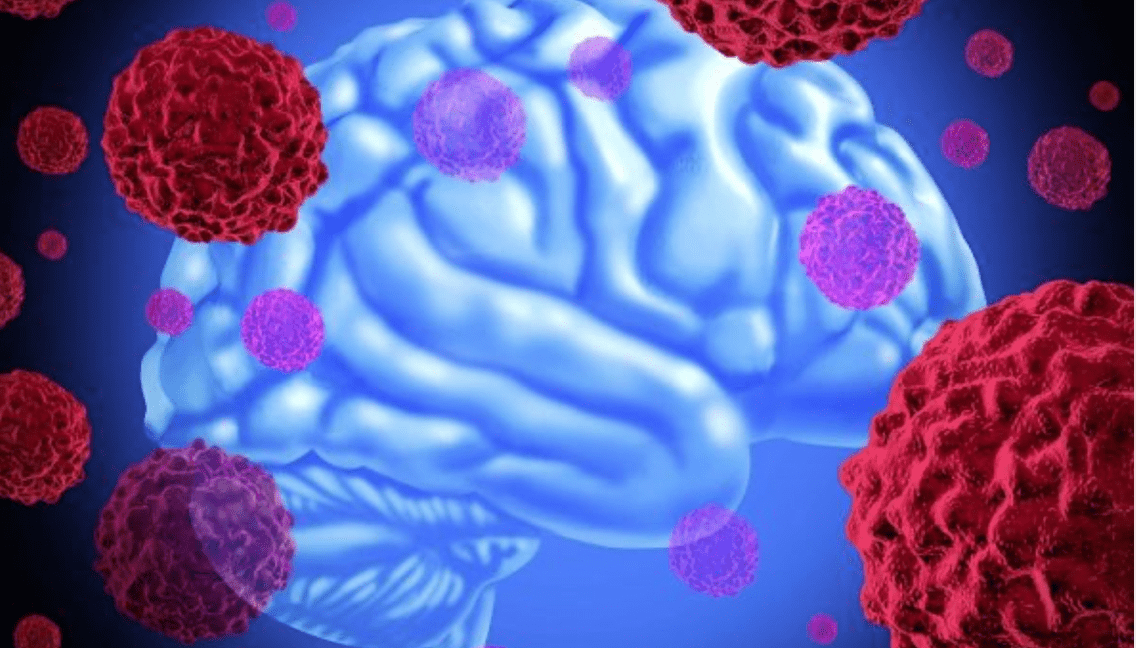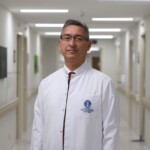-
 News
When glucose levels are low, chemotherapy ceases to affect cancer cells
News
When glucose levels are low, chemotherapy ceases to affect cancer cells
-
 News
Excessive treatment of prostate cancer in older men may reduce quality of life without increasing its duration
News
Excessive treatment of prostate cancer in older men may reduce quality of life without increasing its duration
-
 News
Brain cancer can be cured by viruses
News
Brain cancer can be cured by viruses
-
 News
Ways to reduce lymphatic pain in breast cancer have been found
News
Ways to reduce lymphatic pain in breast cancer have been found
-
 News
Scientists have turned bacteria into a powerful weapon against cancer
News
Scientists have turned bacteria into a powerful weapon against cancer
All news
Angiosurgery and phlebology clinics in Turkey
Every year more and more patients choose Turkish clinics for diagnostics of vascular diseases. Treatment methods and equipment are not inferior to world standards, and the affordable price of medical services makes Turkey one of the best countries for medical tourism.
Vascular surgery can save from serious consequences of such pathologies as: stroke, vessel rupture, thrombosis, thrombophlebitis, trophic ulcers, amputation of limbs, acute renal failure, etc. Angiosurgery is closely related to neurology, cardiology, plastic and thoracic surgery.
Angiosurgery in Turkey uses the most modern achievements of world medicine, thanks to which various vascular diseases are treated here with minimally invasive intervention. For example, in the treatment of varicose veins, laser technologies, foam sclerotherapy and other types of treatment are widely used.
In the departments of vascular surgery in clinics in Turkey, specialists provide their patients with the opportunity to undergo a full range of diagnostic procedures necessary before surgery and effective treatment of most vascular diseases.
MedTour patients recommend clinics for the treatment of vascular conditions in Turkey:
Doctors for the treatment of vascular conditions in Turkey
Frequently Asked Questions
Many patients prefer Turkish clinics for the following reasons:
- High quality of medical services;
- Modern technologies of diagnostics and treatment;
- Teamwork of doctors of different specialties;
- Individual approach to each patient;
- Extensive experience and high qualification of doctors;
- Acceptable price.
To get treatment in Turkey, you should leave a request on the MedTour website. The coordinating doctor will help:
- Find the necessary medical institution and the best doctors;
- Arrange an appointment at the clinic;
- Resolve any additional issues related to treatment (collection of medical documents, booking air tickets and accommodation, airport transfers, and others).
The departments of vascular surgery in clinics in Turkey treat a wide range of diseases associated with damage to the blood vessels.
These include:
- Various diseases of the arteries:
- Obliterating atherosclerosis (narrowing of the arteries due to atherosclerotic layers);
- Aneurysm (local enlargement of an artery);
- Endarteritis (inflammation of the inner wall of the arteries).
- Diseases of the veins:
- Thrombophlebitis;
- Varicose veins, etc.
Minimally invasive surgery is an operation with a minimal area of intervention in the body and the degree of tissue injury.
Minimally invasive surgical techniques in angiosurgery include:
- Miniflebectomy, in which varicose veins are removed under local anesthesia;
- Intravascular laser coagulation, in which veins are treated with ultrasound;
- Balloon angioplasty (stenting);
- Foam sclerotherapy.
If a patients has the following symptoms, they should immediately contact an angiosurgeon:
- The presence of a pronounced mesh of small blood vessels on the lower extremities;
- Severe swelling in the legs;
- Pain, feeling of heaviness in the legs, significantly increasing at the end of the working day or after a long walk;
- Discoloration of the skin on the foot;
- The appearance of flies in the eyes;
- Buzz in the ears;
- Frequent occurrence of a feeling of numbness in the lower extremities;
- Loss of sensitivity in certain areas of the body;
- Tingling in the lower and upper extremities, feeling of running goose bumps;
- Frequent fainting;
- Discoloration of the skin on the fingers and toes;
- Long-lasting healing wounds on the skin.
Angiosurgeon (aka vascular surgeon) is a general specialist with a higher medical education in the field of angiology and vascular surgery, specializing in the treatment of diseases of the circulatory system of the human body.
A phlebologist is a narrowly focused specialist with a higher medical education in the field of vascular surgery and who subsequently received additional training in the field of phlebology, dealing with the treatment of various pathological conditions of the venous system, mainly of the lower extremities.
What does the angiosurgeon treat:
- Varicocele;
- Carotid artery stenosis;
- Aortoarteritis;
- Raynaud’s syndrome;
- Cardiac ischemia;
- Atherosclerosis;
- Myocardial infarction;
- Obliterating thromboangiitis;
- Subarachnoid hemorrhage;
- Hyperabduction syndrome;
- Embolism of the arteries;
- Hepatic vein obstruction;
- Aortic aneurysm;
- AVM (arteriovenous malformation).
What does the phlebologist treat:
- Varicose veins (intradermal and segmental without pathologies, segmental varicose veins with reflux and other forms);
- Phlebothrombosis;
- Thrombophlebitis;
- CVI (chronic venous insufficiency);
- Phlebitis;
- Trophic ulcers;
- Lymphedema;
- Venous hemorrhage;
- PTFS (post-thrombophlebitic syndrome);
- Pulmonary embolism, etc.
It should be noted that diseases within the competence of a phlebologist are also treated by an angiosurgeon, but in case of contacting an angiosurgeon (for example, with varicose veins), if there is a phlebologist in a medical institution, the angiosurgeon will certainly refer the patient to a narrow specialist. And vice versa, when contacting a phlebologist with a systemic disease of the circulatory system or with pathology of the arteries, he will most likely refer to a vascular surgeon.
To make an appointment with a Turkish specialist, leave a request on the MedTour website. The coordinating doctor will help you with choosing a doctor and organizing a trip to Turkey for diagnosis and treatment.
Diagnostics and treatment of vascular diseases in clinics in Turkey
Turkish specialists carry out precise examinations according to modern standards in order to determine the most effective treatment for each case.
Angiosurgeons in Turkey deal with the elimination of:
- Vascular anomalies, which are acquired or congenital;
- Traumatic vascular injury;
- Diseases of the heart of vascular origin;
- Diseases that provoke vascular damage.
Before starting any operation, the vascular surgeon diagnoses the patient with one of the most suitable methods, these are:
- Ultrasound of blood vessels;
- Angiography with contrast agent;
- CT;
- MRI;
- Biochemical blood test to establish disorders in lipid metabolism;
- Determination of blood clotting.
In the departments of vascular surgery of clinics in Turkey, the following are carried out:
- Operations on the carotid arteries;
- Bypass grafting of the aorta;
- Installation of stents at the site of the aneurysm (expansion of the vessel lumen);
- Operations for vascular diseases of the liver, for portal hypertension;
- Bypass grafting of the renal arteries;
- Removal of vascular tumors;
- Operations on the vessels of the lower extremities;
- Balloon stenting of vessels, etc.
Vascular treatment methods in clinics in Turkey
Depending on the diagnosis and the patient’s condition, angiosurgeons can use different methods to improve the condition:
- Minimally invasive surgical techniques;
- Conservative treatment for the correction of important body parameters;
- Non-drug methods (compression hosiery, etc.).
Miniflebectomy
Miniflebectomy of varicose veins is a modern surgical removal of varicose veins through microscopic incisions with a length of 1-2 mm. The innovative operation is performed under local anesthesia. Miniflebectomy can be performed in conjunction with other operations and procedures (for example, with laser ablation), or as an independent operation.
Advantages:
- Treatment takes place on an outpatient basis, without disrupting the usual rhythm of life;
- Painless treatment using local anesthesia;
- Fast cosmetic result;
- There is practically no rehabilitation period, patients can walk right after the procedure;
- The procedure takes up to 40-50 minutes.
Indications for use:
- Varicose veins;
- Thrombosis of superficial veins;
- Swelling of the lower extremities;
- Large varicose veins with a diameter of more than 20 mm.
Foam sclerotherapy
The essence of the technique is the introduction into the cavity of chemicals that destroy the inner lining of the vessel (endothelium), followed by sclerosing – hence the name of the technique. In this case, the veins disappear forever without surgery.
Advantages:
- Procedure up to 20 minutes long;
- Painless treatment under local anesthesia;
- Lack of a rehabilitation period.
Indications for use:
- Relapse of varicose veins;
- Minor varicose veins;
- Thrombosis of superficial veins;
- Varicose veins.
Micro Sclerotherapy
Microsclerotherapy of “spider veins” is a modern cosmetic procedure aimed at removing small diameter venous vessels by injecting specially designed sclerosants into their lumen. Modern thinnest needles with a diameter of 0.16 mm are used. A drug is injected into the vascular networks and destroys them. Then they disappear.
Advantages:
- Leaves no scars;
- Removes all unwanted “vascular networks”;
- Painless treatment under local anesthesia;
- Lack of a rehabilitation period.
Indications for use:
- Vascular nets of various shapes and colors;
- Cosmetic manifestations of varicose veins.
Endovenous laser ablation (coagulation) – EVLK
Endovenous laser ablation is a method of applying heat to a vein with a laser, which closes the vein and disconnects it from the bloodstream. The procedure allows doctors to solve the problem of varicose veins in just one session – without incisions and postoperative scars, and most importantly – quickly and painlessly. The unique vascular laser of the latest generation removes varicose veins even in the most difficult cases.
Advantages:
- Procedure up to 30 minutes long;
- Treatment is outpatient, without disturbing the normal rhythm of life;
- Painless treatment under local anesthesia;
- The safest procedure;
- Flawless cosmetic result, as there are no scars;
- There is practically no rehabilitation period.
Indications for use:
- Varicose veins with any diameter of the vein;
- Eczema of varicose skin of varicose origin;
- Trophic ulcers;
- Venous malformations.
For stenosis, aneurysm and severe congenital malformations, open surgery is performed.
Unique treatments for vascular diseases in Turkey
CGM test or cardiogoniometry
It is a computerized test that produces images by measuring the three-dimensional electrical activity of the heart and the vessels leading to it. This technique is also known as 3D ECG. It is performed in just 4-5 minutes, using 5 electrodes connected to the chest and back, while the patient is resting on his back.
Patients are not exposed to radiation or other chemicals during the procedure. With this test, doctors can predict the risk of a heart attack faster than with a classic ECG.
ABI test
It is a measurement technique that is mainly used to diagnose peripheral arterial disease, when there is a narrowing of the arteries that supply blood to the arms or legs, and therefore impaired circulation in the affected limbs.
The ABI test is performed by attaching a blood pressure cuff to the arms and legs. However, Doppler sonography is used instead of a stethoscope to measure pressure. Doppler ultrasound is a procedure that is part of an ultrasound scan in which blood flow in the arteries can be detected and made visible or audible.
Aortic aneurysm surgery
The aorta is the main artery that leaves the heart and distributes blood throughout the body. All blood that enters the body is pumped from the heart to the body through this vessel. The part where the aorta originates from the heart is called the ascending aorta, and the part where it curves immediately afterwards is the aortic arch. Abnormal saccular enlargements called aneurysms are common in these areas. Aneurysms need to be surgically treated because of the risk of rupture.
Benefits of treatment in Turkey
Choosing treatment and diagnostics in Turkey, the patient gets all the best that world medicine has today:
- Highly qualified vascular surgeons;
- Participation of specialists in related fields: cardiologists and cardiac surgeons, neuropathologists and neurosurgeons, radiologists, rehabilitologists;
- There are 42 JCI accredited healthcare facilities in Turkey;
- Private, public and university hospitals, especially in Istanbul and Ankara, are equipped with the world’s most advanced technology and robotics;
- All Turkish hospitals are served according to national accreditation criteria and are audited twice a year;
- Treatment in Turkey is more affordable than in the countries of Eastern and Western Europe, that is, the prices for medical services in this country are much more affordable;
- Turkey accepts patients during the COVID-19 pandemic, providing the opportunity to undergo rapid tests for the virus, without the long wait and two weeks of isolation.
MedTour coordinating doctors are fluent in Russian, Arabic and English. They will help you choose the best clinic and specialist for your case. Leave a request on the MedTour platform to get a free consultation.
Published:
Updated:


Information on this webpage verified by the medical expert






